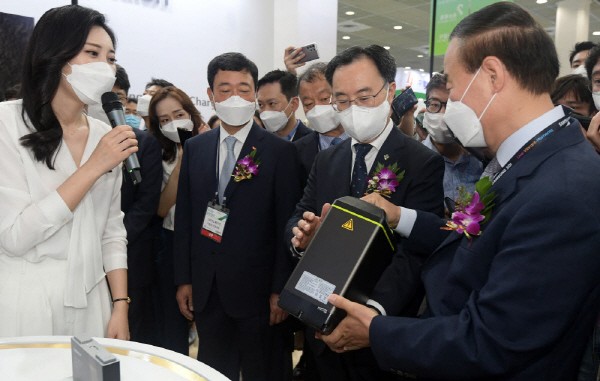
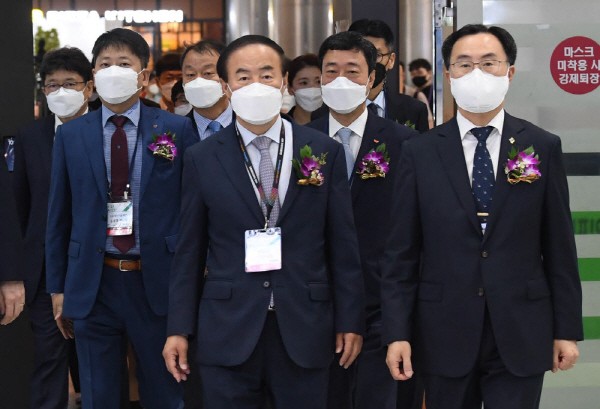
Solidarity and cooperation across major companies to foster the secondary battery industry as a ‘2nd semiconductor’ will begin in full swing. The Korean government will promptly establish and support development strategies to strengthening industrial competitiveness and upgrading the ecosystem. On June 9, Minister of Trade, Industry and Energy Seung-wook Moon attended the ‘Inter Battery 2021’ held at COEX in Samseong-dong, Gangnam-gu, Seoul and had a meeting with key leaders of the domestic battery industry such as LG Energy Solution, Samsung SDI, and SK Innovation to discuss the ‘Secondary Battery Industry Development Plan’. The plan would be announced next month.
Minister Moon emphasized, “The rechargeable battery market is still in its infancy stage, but global competition in technology, price competition, and supply chain management is intensifying. Industry partnership and cooperation are very important to strengthen the overall industry ecology. Minister Moon emphasized the need for nurturing battery professionals to support this and for cooperation among battery-materials, parts, and equipment (small parts) companies.
In response, Samsung SDI’s CEO Young-hyun Jeon, SK Innovation’s Battery Business Head Dong-seop Ji, and LG Energy Solution’s Vice President Dong-myeong Kim said that they would fortify their strategies in targeting the global electric vehicle battery market by expanding cooperation with domestic small business companies.
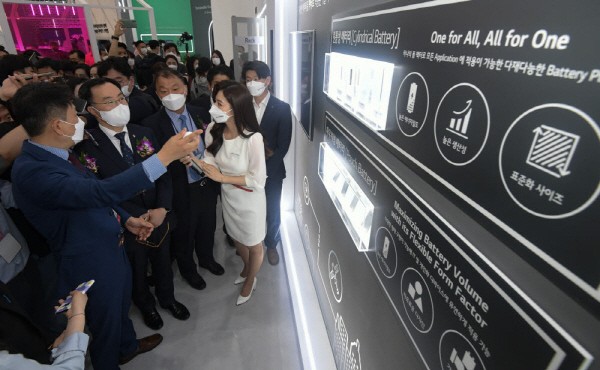
During the meeting, Minister Moon shared the mutual cooperation plan for the U.S. battery supply chain (SCM) he discussed with U.S. President Joe Biden last month and exchanged views on targeting the global electric vehicle battery market. Minister Moon said, “We plan to announce plans for the development of the rechargeable battery industry in early/mid-July. We will actively seek advice on battery industry strategies so that companies can vigorously conduct their businesses.”
CEO Young-hyun Jeon, who attended Inter Battery 2021 as the President of Korea Battery Industry Association, said, “We proposed the Ministry of Industry to help us for the future development of rechargeable batteries, such as fostering manpower so batteries can evolve into a national industry.”
For the first time, the Ministry of Trade, Industry and Energy selected rechargeable batteries for the ‘National Future Industrial Innovation Talent Growth Support Project’ last year for nurturing master’s and doctoral level experts in the battery field. The government will invest 10 billion won for 5 years until 2025 to train battery specialists. Attention is drawn to whether the field talent training project will also be included in the development plan next month, not only to expand the manpower for battery design and advanced analysis but also to supply field-customized manpower and create new jobs.
An official from the Ministry of Trade, Industry, and Energy said that “With battery makers, we are closely reviewing measures to nurture manpower and fill shortages in the field.”
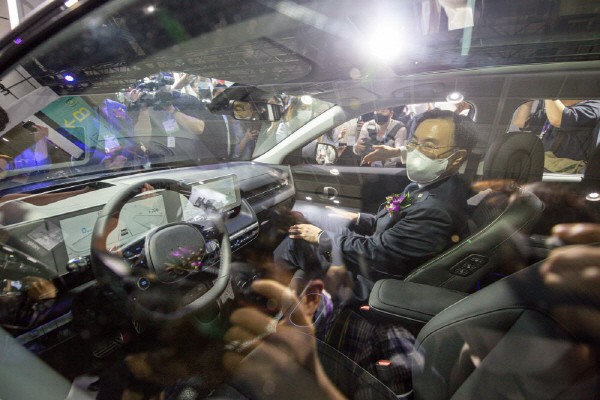
Minister Moon also expressed his will to diversify the supply and demand of battery raw materials. More than 90% of the precursor, a key raw material for battery cathode, is supplied from China, and POSCO Chemical, EcoPro BM, L&F, and Cosmo Advanced Materials & Technology are putting effort to supply their own precursors domestically. Ecopro BM has set the goal of building two precursor production bases in Pohang, Gyeongbuk and raising the production volume of precursors from the current 24,000 tons to 50,000 tons. Meanwhile, POSCO Chemical is considering increasing the proportion of precursor production to 60% while L&F is also seeking to expand the precursor production capacity
L&F’s CEO Suan Choi said, “Our production capacity of precursors is 2400 tons. We plan to increase production by one level.” K-battery makers have expressed their will to fully advance into the global electric vehicle market in earnest.
Dong-seop Ji, Head of SK Innovation’s battery business, said, “We are presently reviewing 4-5 regions for the construction of a joint battery plant in the U.S.”
SK Innovation is actively targeting the U.S. electric vehicle battery market by building a joint plant with Ford, the second-largest U.S. automaker, in Georgia, Ohio, Tennessee, or Texas. SK Innovation plans to target the U.S. market with nickel/cobalt/manganese (NCM) batteries containing more than 90% nickel.
“We are also considering building a cylindrical battery plant,” said Dong- myeong Kim, Vice President of LG Energy Solutions. LG Energy Solutions supplied cylindrical batteries to Tesla’s electric vehicles in the United States, becoming number one electric vehicle battery producer in the world.
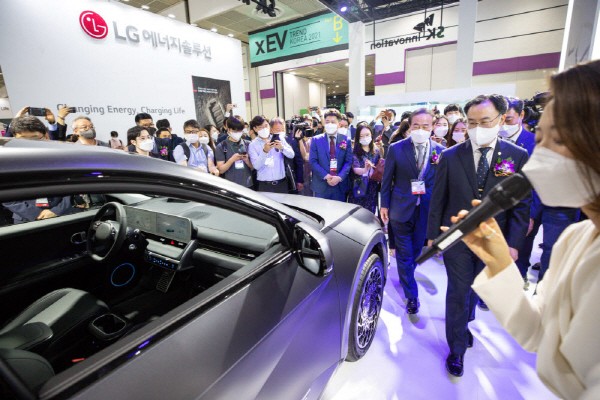
By Staff Reporter Jiwoong Kim jw0316@etnews.com
